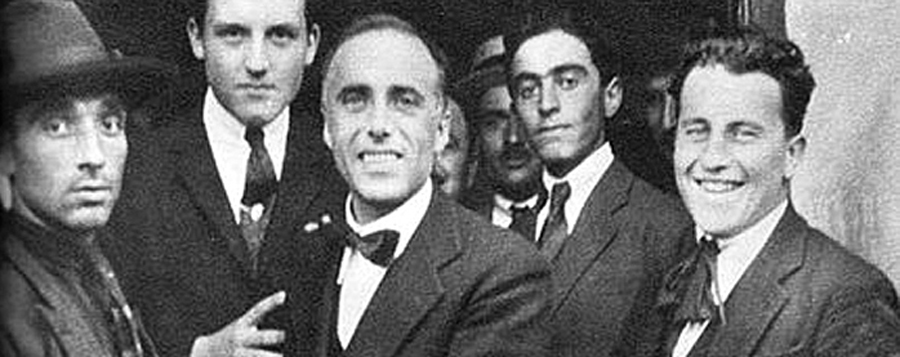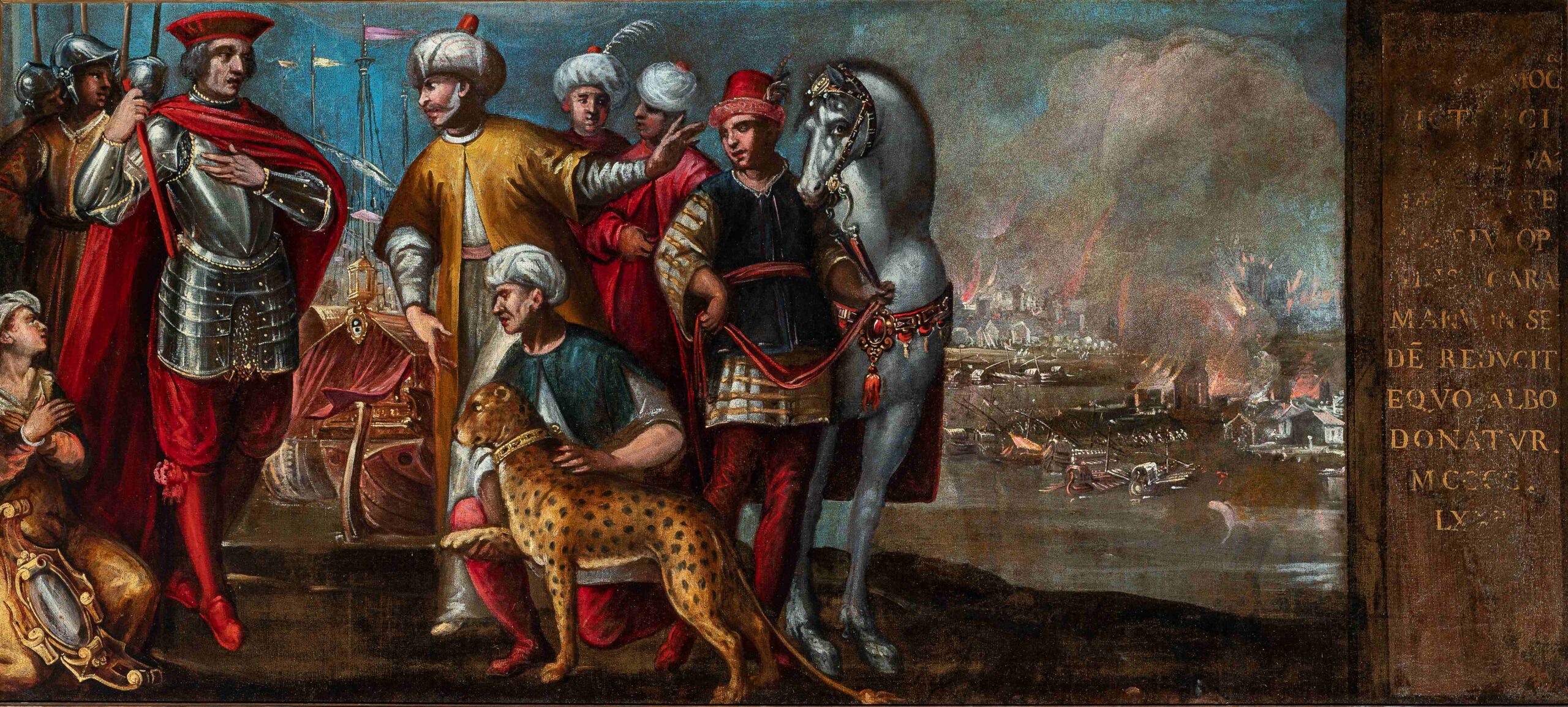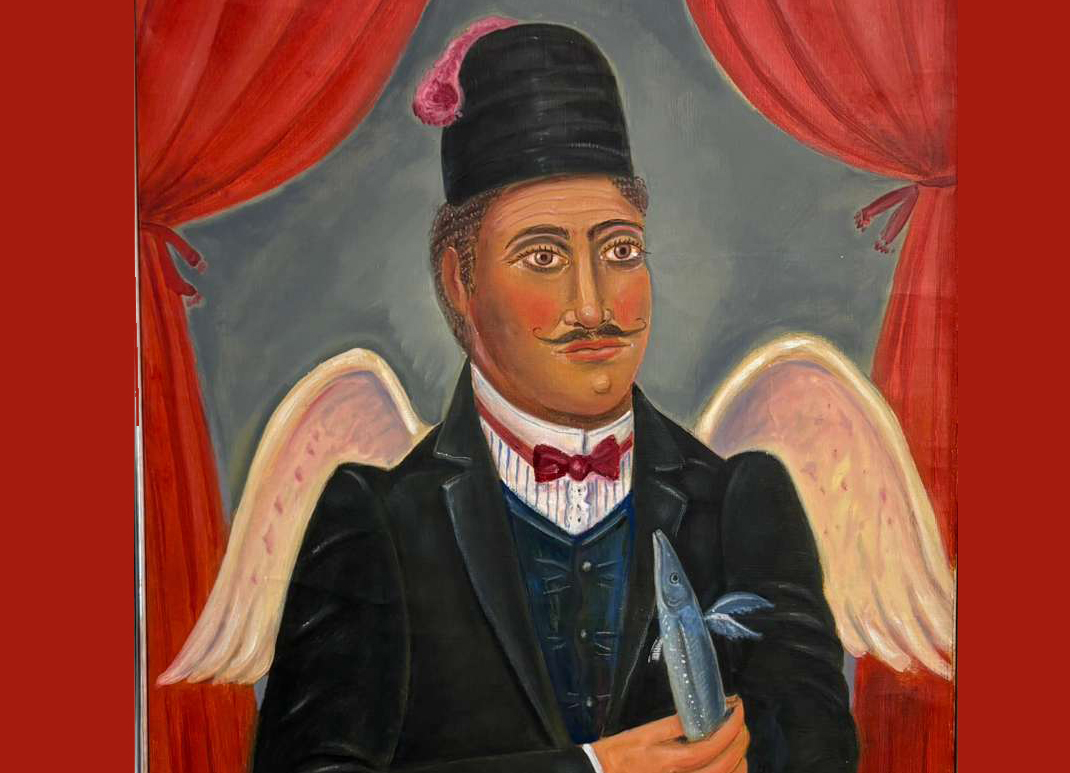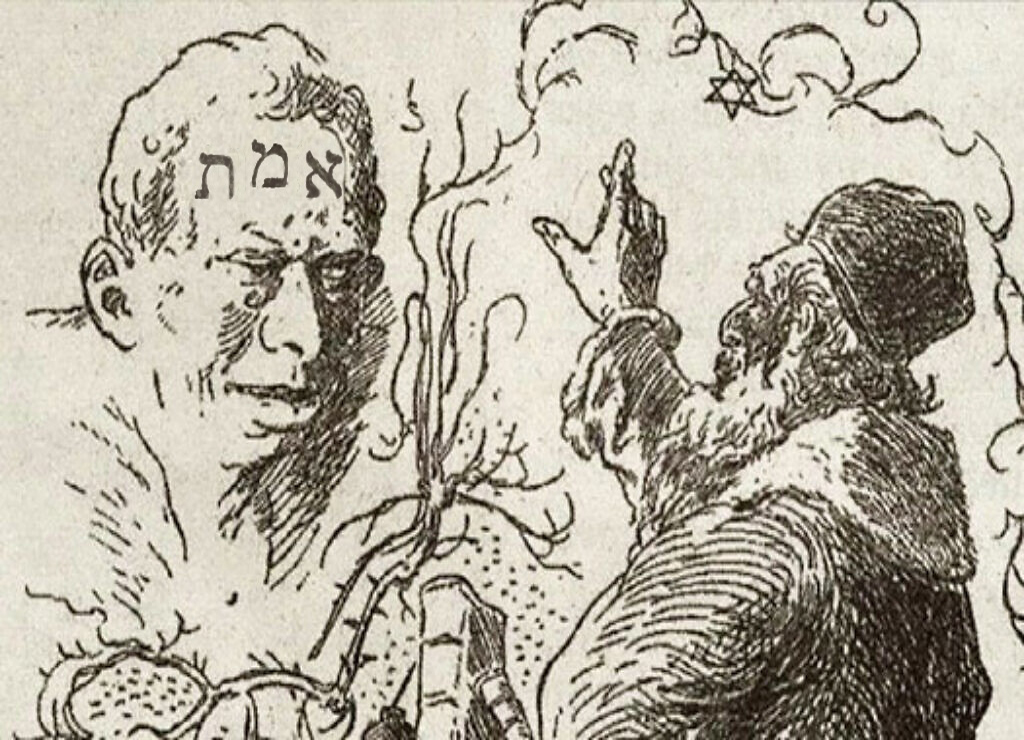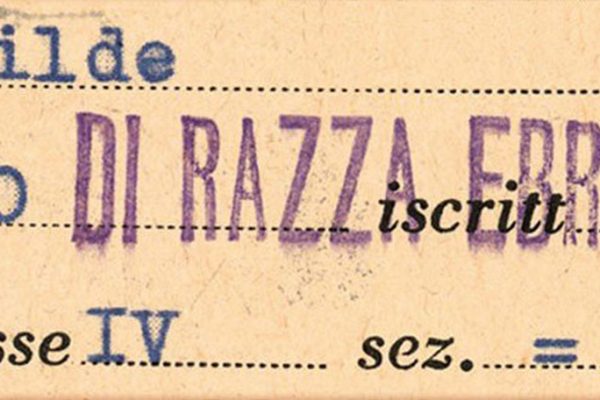The Matteotti murder and the origins of Mussolini’s totalitarian Fascist regime in Italy
This paper was delivered on June 2 at Casa Italiana Zerilli Marimò NYU on the occasion of Italian National Day and the 90th Anniversary of Matteotti’s murder
The barbaric murder of Matteotti, committed on 10 June 1924, marked the end of the so-called ‘legalistic’ period of the Mussolini administration. Prior to that date, Mussolini had been skillfully navigating between intransigent currents and moderate sectors of Fascism.
The hardliners considered the moderate outcome of the March on Rome to have been a betrayal of the Fascist revolution. The moderate Fascists, to the contrary, considered the revolutionary period of Fascism to have come to an end with the formation of the Mussolini government.
That is certainly not to say that the moderate Fascists rejected the use of violence in the political struggle. Rather, they believed that if it were left up to the ‘ras,’ it would prove to be a self-defeating boomerang. They feared that violence, employed and displayed on a widespread, uncontrolled basis, would ultimately undermine the consensus of the moderate social classes that had looked favorably upon the formation of the Mussolini government.
The leading figures of moderate Fascism therefore believed that the control already exerted by the Fascist government over the Ministry of the Interior, the state police, and the Milizia Volontaria per la Sicurezza Nazionale (National Security Volunteer Militia), was sufficient for the purposes of ‘centralizing’ the activity of political repression. They were in favor of a calibrated, discreet form of “state violence”. They were not in favor of an established “state violence”, while the hardliners in the National Fascist Party were actively advocating. This viewpoint led to the idea of establishing a Fascist Ceka, a repressive body under the direct orders of the prime minister.
Mussolini was pursuing a strategy of ‘duplicity. On the one hand he displayed a formal respect for the political procedures and the institutions of the liberal state, on the other, through the Fascist Ceka, he began to intimidate the most active anti-Fascist leaders.
Between 1922 and 1924, despite Mussolini’s repeated assurances of his respect for the rule of law, acts of violence had continued to be perpetrated against the opposition.
Mussolini advocated to establish the Ceka as early as the period immediately following the March on Rome. He did so because he considered the liberal institutional context as an obstacle to the totalitarian prospects of Fascism.
Mussolini summarized the need for Fascism to work around the garantismo (‘respect for civil rights’) of the liberal system in a statement he made, a few days after he formed his government:
“all governments undergoing a transition need certain illiberal branches to take care of their adversaries.” […] Control of the official agencies of the state” would allow the Fascist government to “drape a cover over all its illegal acts of violence.”
Mussolini entrusted the establishment of the secret police to two of his closest colleagues, Cesare Rossi, the head of his press office, and Giovanni Marinelli, the administrative secretary of the National Fascist Party. The Ceka operations relied upon the services of a group of former Milanese arditi (‘Italian assault soldiers from the First World War’). Their heads were Amerigo Dumini and Albino Volpi, longstanding loyals of Mussolini.
Dumini had been a key figure in all the punitive expeditions organized in Tuscany by the Florentine Fascists. Rossi had begun the establishment of the Fascist Ceka under cover. He was its true mastermind. The men who carried out Ceka operations were ensured they would be exempt from legal consequences by the presence at the top of the state police of General Emilio De Bono, who had been one of the organizers of the March on Rome.
During the years that De Bono was the chief of the national police (1923-1924) no punishment was ever inflicted for the assaults on Giovanni Amendola, Cesare Forni, or Alfredo Misuri, or for the attacks on Alberto Bergamini and Ulderico Mazzolani. And none of the hundreds of Roman Fascists who carried out the devastation of Francesco Saverio Nitti’s villa was identified.
The Mussolini government was particularly concerned for the relentless activity of Giacomo Matteotti, the young secretary of the Partito Socialista Unitario (PSU, or unified Socialist party). The party had been established, twenty days prior to the March on Rome, by the social-reformist component led by Turati, in a breakaway from the Italian Socialist Party.
Matteotti was a consistent and rigorous reformer who considered reforms to be nothing more than a way of overturning capitalist society in order to begin the process of constructing a new society. He was elected to the Chamber of Deputies for the first time in 1919.
The democratic procedure and respect for the institutions remained central for Matteotti. He was in favor of “the democratic and parliamentary way to Socialism.” In October 1922, he left the PSI to found the PSU, largely driven by an aversion to Communism and the Bolshevik model, a direction in which at the time the maximalist component of the PSI seemed to be tending. Turati, who appreciated his considerable organizational skills, asked him to become the secretary of the new party.
Matteotti had had an opportunity to study the Fascist squadrismo at its birth; in the Polesine area where he was born, Fascism had manifested itself in an especially crude and violent form. Matteotti’s attitude toward the Fascist government was always rigorously intransigent. He was unwilling to consider any truce, any accords, or collaboration of any kind between Socialism and Fascism. He often clashed with other members of the party who believed it was necessary to ‘collaborate’ with the Mussolini government. He therefore found himself engaged in a struggle on two fronts: an external battle against Fascism and an internal battle against the ‘collaborationists’.
He saw both battles as intimately linked: the more successful he was in highlighting the reactionary nature of Fascism, the more difficult it would be for the ‘collaborationists’ to establish alliances with the Mussolini government. In order to keep ‘collaborationists’ clear of any cabinet-level compromises, Matteotti had to carry on an exhausting campaign of denouncing the crimes and violence of Fascism, while pointing out the incompatibility of Fascism and democracy.
Matteotti embodied the characteristics of the modern political leader. He had begun traveling earlier than most, developing a personal culture open to the influences of the most mature European Socialism. He had an uncanny grasp of the laws of economics and finance. He had published a pamphlet, A Year of Fascist Domination, in which he examined, on the first anniversary of the advent of Fascism, the actions of the Mussolini government, and disputed, point by point, all of its claimed achievements.
In the young Socialist deputy, Mussolini had found a combative, resolute, and well-prepared adversary. In order to restrict Matteotti’s activities outside of Italy, Mussolini had ordered his passport confiscated, but that did not prevent Matteotti from continuing to travel outside of Italy. He merely had himself smuggled across the border in secret. He had thus succeeded in making a number of journeys, between 1923 and 1924, to France, Belgium, and England.
In the first few days of May 1924, upon his return from a secret trip to England, he visited the Rome police headquarters yet again to request the return of his passport. He explained that he needed it for a brief trip to Austria between the 7th and 10th of June to take part in a demonstration of the Austrian Social Democratic party.
His strategy of attack against Fascism had only been reinforced by the outcome of the national elections of April 6th 1924, in which his party had enjoyed an encouraging success. This marked a confirmation of the support given by substantial sectors of the working class and the urban middle class to his intransigent opposition to the Fascist government.
During the session of May 30th 1924, the Fascist government, in violation of established parliamentary procedure, proposed an approval en masse of the newly elected members of the majority. Matteotti, after depicting an unsettling national panorama of violence and criminal behavior, had provocatively demanded the blanket annulment of the elections.
Matteotti’s speech was repeatedly interrupted by furious reactions from the majority, but the young Socialist parliamentarian had courageously continued his speech to the very last word.
As he was exiting the Chamber of Deputies, to his colleagues, who were eagerly congratulating, it is reported that he replied, “Now you need to get ready to hold a wake for me.”
The Chamber of Deputies closed its doors, and was scheduled to resume its session on Wednesday June 11th, when debate would begin on the administration’s estimated budget.
While waiting for the inauguration of the new legislature, Matteotti spent every afternoon in the library of the Chamber of Deputies. He would emerge from his home at 4:00 o’clock, and would not return until 7:30 pm. That routine was interrupted on 5 June by the unexpected news that, police headquarters had agreed to return his passport, though it was valid only for travel to Austria.
Matteotti went to pick up his passport, thus leaving the government uncertain whether he planned to leave for Austria on 7 June or remain in Rome to take part in the opening session of the Chamber of Deputies. He had already decided to remain in Rome.
On the afternoon of June 10th, Matteotti once again left his home at 3:30 pm. Waiting for him on the Tiber embankment was a Lancia Lambda, and inside the car were his killers.
He was assaulted, beaten violently, and knocked unconscious; he was then loaded into the car, which departed at high speed in the direction of the Ponte Milvio. His lifeless body was not found until August 16th, in a grave dug twenty kilometers outside of Rome.
All the same, due to a fortuitous set of circumstances, the police had already succeeded, just two days after his kidnapping, in identifying the murderers and recovering the automobile. The condition of the vehicle’s upholstery, spattered with enormous pools of blood, made it clear that Matteotti was unlikely to be found alive. The five murderers, all identified and arrested, were all members of the Fascist Ceka: Amerigo Dumini and Albino Volpi, the two unquestioned heads of the Ceka, the driver Augusto Malacria, and Amleto Poveromo and Giuseppe Viola.
On August 20th the remains of the young Socialist deputy were transported by train to Fratta Polesine. Along the route, an overwhelming crowd paid a final tribute.
The murder of Matteotti, and the fact that the identity of his killers pointed directly to Mussolini, triggered a very grave crisis in the Fascist government.
That crisis was overcome only by the convergence of a number of factors: Mussolini’s political skill, the divisions within the opposition, and the weakness of the king, who was unwilling to ‘order the resignation of’ Mussolini, for fear of a ‘leap into the dark.’
In these situation, Mussolini was able to begin the most authoritarian phase of his regime.
The preliminary investigation against the murderers was influenced by the shifts in the political climate, and therefore developed in two distinct phases. In the first phase, from June to December of 1924, the investigation, conducted by Mauro Del Giudice and Umberto Tancredi, two capable and determined magistrates, pointed to a willful murder.
The magistrates achieved major steps forward, leading to the arrest not only of the actual material perpetrators of the murders, but also of the secondary instigators, Cesare Rossi and Giovanni Marinelli. The preliminary investigation not only proved the existence of the Fascist Ceka, but also succeeded in establishing its responsibility for quite a few crimes before the murder of Matteotti.
After January 1925, the preliminary investigation suffered from the resumption of political initiative by Mussolini and Fascism. By the spring of 1925, justice Del Giudice and Tancredi had been replaced by Nicodemo Del Vasto and Antonio Albertini, both indulgent toward the regime. Del Vasto was in fact Farinacci’s brother-in-law.
The two magistrates directed the preliminary investigation toward a theory of the involuntary nature of the murder. The government, in its turn, prepared to rescue those who had been arrested, both perpetrators and instigators. By July 31, 1925 a decree providing amnesty for all political crimes, explicitly meant to rescue Matteotti’s killers.
The verdict of the preliminary investigation, dated December 1st, 1925, found that the murder of Matteotti was involuntary, and called for the release from prison of Rossi and Marinelli. The trial of the five perpetrators, held in Chieti in March 1926, concluded with the acquittal of Malacria and Viola and the conviction of Volpi, Dumini, and Poveromo. They were however spared their sentence by the amnesty.
The body of historical research has been striving for decades to provide a thorough and adequate response to the important questions of who was responsible and what were the motives for the murder of Matteotti.
Until recently the proceedings of the Matteotti investigation have remained classified. In 1991 however, I was able to access full copies that Giuseppe Emanuele Modigliani, himself an antifascist who was the lawyer of the Matteotti family and fled Italy in 1925, brought with him to France and untrusted to Gaetano Salvemini.
These documents have made it possible:
a) to reconstruct the origins, the development and structure of the Fascist Ceka.
b) to establish the identity and the political personality of perpetrators and instigators: Dumini and his comrades were not five clumsy killers, as claimed by the prosecutors, but rather loyal and skilled soldiers of Fascism. These soldiers, with their silence, in complicity with the government, saved Fascism and Mussolini himself.
c) to reconstruct in a more detailed manner the phases of the planning and execution of the murder, making it very clear that the five killers received direct assistance from Mussolini and from the highest ranks of the National Fascist Party, before, during, and after the murder;
d) to establish in what amounts the personal guilt, both direct and indirect, of perpetrators and instigators.
From prison, Dumini managed to send several letters to his lawyer, Vaselli, who handed them over to Mussolini. In a passage from one of these letters he stated: “And you must know that in the Forni affair, as in all the others, we were only the perpetrators of the crime, just as Rossi and Marinelli were simply transmitting the orders. Is it clear that we are all dancing with a mine beneath our feet? And I don’t mean only the defendants.” In this phrase, the roles and the responsibilities of the Ceka are clearly laid out: Mussolini ordered the crime, Rossi and Marinelli “transmitted” Mussolini’s orders, and Dumini and his comrades perpetrated the crimes as commanded.
In another letter Dumini declared: “I, or perhaps I should say we, […] have the right and the duty to defend ourselves however we can—[…] because we have no intention of undergoing a terrible and irremediable punishment for a crime that we certainly did commit—but which was imposed upon us, and which we carried out—like so many others before it—with blind obedience, and only after we were assured in the most absolute terms complete criminal immunity.”
These documents have also made it possible to emphasize the flimsiness of the political motive, which has been traditionally used to explain the crime as Mussolini’s reprisal for Matteotti’s bitter denunciation before the Chamber of Deputies on May 30th, 1924.
Records show however, that the murder was ordered ten days before May 30th. In a telegram dated May 20th, Dumini ordered several Milanese members of the Ceka to leave for Rome. On the morning of May 22nd, Ceka chief, Albino Volpi arrived in Rome, accompanied by three other members of the organization, Panzeri, Poveromo, and Viola.
The five gave false names at the Hotel Dragoni where they stayed. The Austrian, Otto Thierschwald, was charged with tailing Matteotti and keeping his home under surveillance. In short, the preliminary investigation determined that Matteotti’s killers, all of them Milanese arditi, gathered in Rome on May 22nd, and began tailing Matteotti on the following day.
The proceedings of the preliminary investigation also excluded that Dumini had nothing more in mind than to administer to Matteotti the traditional harsh clubbing, and that the ‘Fascist lesson’ ended in tragedy involuntarily.
Dumini himself was careful not to avail himself of that version in his defense, since he was aware of the unanimous testimony of passersbys who had witnessed the kidnapping.
The clear determination of the attackers to carry their victim away from the scene of the assault conflicted with the usual pattern of Fascist punitive expeditions, which normally ended with the “punished” victim bleeding on the asphalt.
Dumini further added that he had never planned or organized the kidnapping, but that it had been a spur-of-the-moment decision, taken in complete independence.
Records once again plainly contradict Dumini’s version. Several witnesses stated that the Lancia had been noticed the night before driving around Matteotti’s home. The investigation revealed that Dumini reported to the highest Fascist hierarchies; his name appeared in the pay-book of the ‘fondi neri’ (slush fund) of the prime minister’s press office. He operated under Rossi’s or Mussolini’s direct order.
It was highly improbable that he would undertake the kidnapping of such prominent figure as Matteotti.
Dumini must have feared that he was about to be abandoned by the regime, and – in another letter – wrote that he considered necessary: “a complete, cautious, and intelligent review of not only our entire trial history, but particularly, the entire line of action that I began on October 20th, 1924, the date on which I assumed complete responsibility—both planning and execution—for the Matteotti murder.”
The records of the preliminary investigation therefore, leave little doubt that the killing of Matteotti was a premeditated, willful murder, executed at the command of the Fascist hierarchies.
In order to fully understand the reasons for the urgency and the apparent improvisation with which they acted, it is crucial to explore the question of the real motive for the murder, and the Ceka’s original plans.
The investigation’s record indicate that Dumini’s original plan was to kill Matteotti during his trip to Austria.
It is quite likely that if Matteotti had boarded the train, someone would have followed him and taken action in the Austrian capital. The investigators reached this conclusion from the deposition of the Austrian Cela member, Otto Thierschwald, who confessed that the release of Matteotti’s passport was meant to have the murder executed in Vienna.
Matteotti actually picked up the passport and persuaded the men of the Ceka that he was actually preparing to travel to Vienna. On that Saturday Dumini arranged to have the deputy’s home placed under close surveillance. When Thierschwald reported that Matteotti had not left his home, Dumini went to Rome’s Termini station to carefully inspect the train departing for Vienna.
On the following morning, the five were certain that Matteotti had not departed, and that he was planning to speak on June 11th, during the opening session of the Chamber of Deputies.
It was then, that the emergency plan for the criminal operation was put into action. Dumini sent a telegram to Volpi on the morning of the 8th, ordering him to “depart immediately” for Rome and to take with him the “skillful driver.” Volpi arrived in Rome on the morning of June 10th with Augusto Malacria who drove the Lancia Lambda.
The element of improvisation in the execution of the murder is explained by the haste imposed by Matteotti’s supposedly change of plans. The time available for them to act had shrunk to just two days, Monday the 9th and Tuesday the 10th of June. Since the library of the Chamber of Deputies was closed on Monday, the Ceka was left only the Tuesday to commit the murder.
Indeed, on June 10th, there were only two brief moments that were favorable for carrying out the kidnapping: when Matteotti left his home, at 3:30 pm, or when he returned home. The killers chose the first probably because it was easier to predict his departing time and because he would certainly be alone, while that could not be said for his return home.
Why did they want to prevent Matteotti from addressing the Chamber of Deputies?
As early as the day following Matteotti’s kidnapping, rumors had begun to circulate that his speech for June 11th, included the revelation of serious cases of corruption that involved high officials of the government and the National Fascist Party. Among these, he would have allegedly made explicit references to bribes accepted by Italian high officials in the Sinclair oil concessions.
The preliminary investigation also obtained depositions concerning the participation of the duce’s brother, Arnaldo Mussolini in the final phases of the negotiation of the agreement between the Fascist government and Sinclair Oil.
It all began in April 1924, when Matteotti, from Brussels, where he had traveled to take part in the congress of the Belgian Socialists, traveled in great secrecy to London to meet with high officials of the Labour Party.
We now know that he discussed with the Labour Party officials the negotiations that the Fascist government was conducting with the American company Sinclair Oil. These negotiations concerned exclusive concessions to Sinclair on oil exploration on Italian territory.
The Labour Party officials listened to his account with great interest, as the British government now owned the nationalized APOC, or Anglo-Persian Oil Company, the most powerful competitor of the American oil trust. In that period, the APOC was working to gain a foothold in the Italian market.
In Italy, the American Standard Oil exercised a full-fledged monopoly through SIAP, the Italian-American Oil Company, which controlled 80 percent of the market. But the growing Italian demand for oil had placed the Mussolini government in the presence of a clear alternative: either undertake an oil exploration policy that would progressively free the country from its dependence on Standard Oil, or else continue to depend on the American company for its oil supply.
The Sinclair Oil negotiations had begun through the Italian ambassador in Washington, Gelasio Caetani. In their first phase were conducted in Washington and New York, between Caetani and Harry Foster Bain, director of the U. S. Bureau of Mines, the federal agency that oversaw oil policies. Caetani, the scion of an aristocratic Roman family, was a mining engineer. He moved to New York at the turn of the twentieth century to study at Columbia University. He had worked for the Guggenheim group, and established working relationships with the leading American financial groups. In part because of these connections, Mussolini had appointed him Italian ambassador to the United States. When Caetani began to take interest in the activities of Sinclair Oil, he was also operating as a man trusted by the Guggenheim group. Likewise, Harry Foster Bain was tied to the Guggenheim group and to Sinclair Oil, and when, during the Harding administration, he became the director of the U.S. Bureau of Mines, he transformed his office into a subsidiary of Sinclair Oil.
In the summer of 1923, Caetani had conveyed Sinclair Oil’s offer to Italy. He had no difficulties persuading Mussolini, who found collaboration in the minister of National Economy, Orso Mario Corbino, representative of the interests of the northern Italian electrical industrialists, but also, through his position as president of the Italian subsidiary of General Electric, allied with the Morgan Bank. Corbino had always maintained that it was necessary to open the Italian oil market to foreign capital, and so he quickly supported the Sinclair Oil project so fervently that he acted as an intermediary between Mussolini and the negotiator in Italy for the American oil company, the Sinclair vice president Arthur C. Veatch. The negotiations were successfully concluded with a verbal agreement between March 7th and 10th, 1924. In violation of the mining laws then in effect, the Italian government assigned Sinclair Oil an exclusive concession for oil exploration in Sicily and in northeastern Italy. The agreement allowed Sinclair Oil to exploit these vast areas for a period of ten years, because it was only after the expiration of that period that the agreement required the oil company to identify certain restricted areas in which to undertake production for the rest of the term of the concession: fifty years.
Moreover, the American oil company was given extraordinary tax benefits. The contract was something of a windfall for Sinclair. Mussolini demanded that Veatch keep the agreement secret at least until after the April 6th elections; this clearly showed that he knew the agreement, with the foreseeable cloud of suspicions and conjecture concerning the legitimacy of the operation, would make a tempting target for the opposition parties in the run-up to the election.
There is a particularly disconcerting aspect to the story: as increasingly worrisome news reports concerning the involvement of Sinclair Oil in the Teapot Dome scandal filtered back to Italy from the United States, Mussolini, instead of breaking off negotiations, accelerated them, finally concluding an agreement in the space of a few days. But once the agreement was stipulated, he refused to receive Veatch out of fear that news of any meetings might leak out and be published by the press. In fact, the official document signing took place on May 4th, 1924.
Upon his return to Italy from England, Matteotti showed an interest in the Sinclair Oil case. He wrote an article in mid-May 1924, though it was only published after his death, in July 1924, in the British magazine English Life. This article, titled Machiavelli, Mussolini and Fascism, is crucial to our understanding of his trip to London. Prior to that trip, Matteotti had never shown the slightest interest in the lengthy negotiations that preceded the signing of the oil exploration agreement.
In contrast, upon his return from England, in his article for an English magazine, he explicitly declared that he knew quite a few things about the agreement. It is therefore entirely reasonable to theorize that in London he had been given much more than just a few generic tips concerning the Sinclair case.
The article clears away any doubt on the matter: Matteotti definitely was persuaded that there had been corruption at work behind the agreement with Sinclair. It is worthwhile to point out that, even though the article was published, it has never been cited in the literature concerning Matteotti, because historians have always ignored its existence. It was however included among the exhibits of the preliminary investigation.
In that article, Matteotti stated that Sinclair Oil in Italy was nothing more than a pawn working on behalf of Standard Oil. Sinclair Oil – he wrote -“is connected with the octopus-like Standard Oil Trust.” After denouncing the agreement as contrary to national interest, Matteotti proceeded to make a statement that was pregnant with meaning and with consequences and constitutes the most significant part of the article:
“We are already aware – wrote Matteotti – of many grave irregularities concerning this concession. High officials can be charged with treasonable corruption or of the most disgraceful jobbery”.
The other question that has always haunted all attempts to interpret this matter can be summarized as follows: did the Fascist government actually fear Matteotti’s presence on June 11th? And if so, why?
The investigation papers prove that in fact the government did fear the beginning of the parliamentary session, and expected an attack on the “Sinclair concessions.” The evidence takes the form of a telegram sent in early June, in the name of the Minister of National Economy, to the Italian embassy in Washington: “Urgently required by the tenth of this month information requested in my telegram 2475 especially concerning relations existing between Sinclair and Standard and Anglo Persian.”
The words (“by the tenth of this month”) clearly show that this was not a routine request. If we recall that on June 11th the Chamber of Deputies was scheduled to open again, with a discussion of the estimated national budget, we are led to conclude that the Mussolini government, in the person of the minister with jurisdiction, expected to be called upon by the opposition to account for its actions with respect to the Sinclair concessions.
Concerning the link between the profit motive and Machiavelli, Mussolini and Fascism, the political motive, there is an invaluable report from Epifanio Pennetta, the chief of the office of judicial police who stated that the motive for the murder was not to be sought in the “political reasons alone, but rather in the need to silence the Honorable Matteotti who was determined to stir up a scandal against the financial groups, in their relationships with politicians.”
Pennetta confirmed: “From the moment I began investigating this murder I had the impression, concerning the motive, that aside from the political motives, there were other motives of a financial nature. The material perpetrators and their instigators were evidently immediately bent on a political vendetta; others instead would take advantage of their state of mind for the defense of their personal interests.”
Pennetta continued with an interesting version of the negotiations that had led to the final version of the Sinclair concessions. “It is well known that the Sinclair company asked for exploitation rights to all the oil deposits in Italy. When that request was met with serious objections, the Sinclair company pretended to be satisfied with the regions of Sicily and Emilia, with the involvement of the Nafta company of Genoa for the coastal deposits and the Saper company for the other regions. To all appearances, the two companies were in competition with the Sinclair company, while in fact they were in cahoots with Sinclair.” Pennetta concluded that the Honorable Matteotti “intended to stir up a scandal in the Chamber of Deputies in relation to the oil agreement.” Also, the judicial investigator stated that Sinclair Oil, apparently independent, was actually working in concert with Standard Oil.
Other statements corroborate this thesis. One of the killers, Amleto Poveromo, as early as the years 1935 and 1936, explained that the objective of the Matteotti kidnapping was in fact to take documents that were in his possession.
Subsequently, in the wake of the insurrection of April 25th, 1945, after he had been taken prisoner by the partisans, he stated that, in the days prior to the murder, Dumini had told him that it was necessary to kidnap Matteotti, because the parliamentarian “was going to make a major speech to the Chamber of Deputies and that it was therefore important to get the documents that he had with him because they were embarrassing for Mussolini and the Party.”
In July 1945, when he was questioned by the magistrate running the preliminary investigation in Milan, he stated that he had learned “from Volpi of the existence of an order, though he did not know who had given it, to kidnap the Honorable Matteotti and take his documents from him.” He further reported that on the night of June 10th, after their return to Rome, Dumini had immediately left again “with the {borsa}, in order to deliver it, I believe, to Marinelli and to Cesare Rossi.” Confirmation of the veracity of this business interests came in the mid-1980s with the discovery and publication of the testament of Dumini.
Released from prison, he had begun to annoy Mussolini, demanding proper compensation for the role he had played as the savior of the regime in the Matteotti affair. Dumini was convinced that Mussolini had no intention of negotiating with him, and fearful for his physical safety, wrote an account of the Matteotti murder, which he managed to smuggle to the law offices of a pair of lawyers in Texas, Martin Arnold and Hugh L. Robertson. He immediately thereafter informed the highest ranks of the PNF (or National Fascist Party) of the existence, outside of Italy, of a document describing the murder. In his written account, he revealed that the order to kill Matteotti had been given to him for reasons that were both political and financial in nature.
Matteotti represented “the only genuine serious adversary of Fascism.” Dumini reported that in Fascist circles, it was an accepted fact that Matteotti’s imminent parliamentary offensive against the Mussolini administration would focus “as much on financial policy as on the scandals that had erupted and then subsided in connection with the oil business.”
Dumini confirms that the decision to kill Matteotti was based on the “menacing presence of the file on petroleum, and the fear that it might be presented in the Italian parliament.” According to Dumini, in Fascist circles, there was a certainty that Matteotti was in possession of the “proof of certain frauds in which were involved—in a malodorous and regrettable lack of ethical rigor—a certain deal linked to oil, the stock exchange, and foreign currency; it even appeared that the brother of the head of the government was implicated in these dealings.”
Poveromo’s reference to the documents that were handed over by Dumini to the two instigators, Rossi and Marinelli, brings up a final question: what finally happened to the documents that Matteotti had with him when he was kidnapped? The envelope made of heavy paper, bearing the emblem of the Chamber of Deputies, along with the documents that it contained, was never found, and continues to constitute a powerful argument in favor of those who claim that it is in the content of those documents that we should seek the motivation for his murder.


